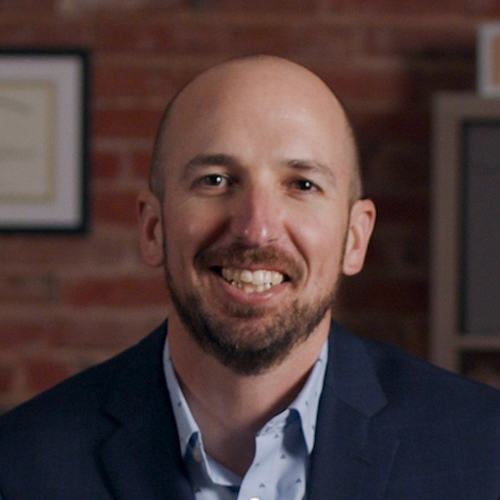The Big Flaw in the Latest Study on Money and Happiness
Andy Snyder|January 25, 2021

We read a disturbing story about money last week.
It’s the kind of half-cocked reporting that steers minds in the wrong direction, builds ignorance and furthers our cultural descent.
The headline says it all…
 Don’t fall for this tripe. Like a “friendly” wolf, it will lead you astray until you’re suddenly surrounded by a pack of drooling, growling beasts.
Don’t fall for this tripe. Like a “friendly” wolf, it will lead you astray until you’re suddenly surrounded by a pack of drooling, growling beasts.
It sounds like odd advice coming from a fella who’s made a career out of money… and sharing how to make more of it, right?
Ahh… that’s what gives us the credence to say what we will.
We know money.
We know it doesn’t buy happiness.
It buys freedom.
It’s why Joe the Plumber can’t wait to clock out for the last time when he turns 65, while Warren Buffett (with enough cash to retire a thousand times over) still goes to work at 90.
Facts vs. Reality
The study in question here is, admittedly, quite interesting.
It comes from the folks at Wharton… the breeding ground for so much of Wall Street’s snobbish class. It’s where Buffett got his start.
Certainly, if the study had found no link between wealth and happiness, we never would have heard about it. The folks funding such studies wouldn’t have been too fond of the news.
But, alas, the study tells us money has no limits. The more we’ve got… the happier we are.
We wonder what last week’s $731 million Powerball winner will have to say about that in a few years.
We once studied past winners of big prizes. We came away with a simple conclusion… This tax on the poor must be outlawed.
It’s that notion that takes us to the study, how it worked and its one big flaw.
The Great Retirement Sham
The folks behind the research created a smartphone app. It popped up at random times and asked folks quick questions about their happiness at that moment.
For example, the screen might light up and say, “How do you feel right now?”
Folks, who might be watching TV, in a meeting or at the dentist, could pick an answer on a scale ranging from “very bad” to “very good.”
Through some 2 million data points from more than 30,000 folks, the results showed that those who were worth more consistently reported that they were happier more often.
“When I looked across a wide range of income levels, I found that all forms of well-being continued to rise with income,” said Matthew Killingsworth, the man behind the study. “I don’t see any sort of kink in the curve, an inflection point where money stops mattering. Instead, it keeps increasing.”
If that’s true… isn’t the notion of retirement a great fallacy?
If more money leads to more happiness, why in the world would anybody grab a rag, wipe their hands with it and say that’s enough?
If it were true… wouldn’t our happiness decline each and every day of our retirement?
Wouldn’t Bill Gates be approaching misery levels as he’s given more than $50 billion to charity?
Clearly, something is amiss.
A bit of understanding will tell us what it is.
Feelings and Emotions… Yick
But first… a warning. What lies ahead may appear sappy and fluffy.
It’s not.
Read it with an open mind.
You see… the researchers at the business school should have spent some time chatting with their introverted pals in the psychology department.
If they had, they would know that their test measured emotions… the short-term, conscious reactions that are built into our DNA.
Fear. Anger. Curiosity. Laughter.
They are short-lived and built into us. Emotions are why we jump when scared… and laugh when told something funny.
They’re short-lived.
We know plenty of folks (mainly our former editors) who cry one minute and laugh the next.
Instead of measuring emotions – here’s the sappy stuff – the researchers should have devised a way to measure feelings.
What’s the difference?
A lot.
Feelings – again, this is according to folks a lot smarter than us – are the long-term, subconscious accumulation of emotions.
The best way I’ve heard it explained is in a line we’ve heard too often in our life.
“Andy, I love you,” they say with disappointment in their voice, “but right now I don’t like you.”
See the difference?
We love our kids. That’s a long-term given we don’t have to think about.
But short term?
We’d all have hit the “I’m gonna kill ’em” button many times had it popped up on our phones.
The Real Results
Truly, the study only found that wealth leads to more short-term happiness.
It does nothing to measure the cumulative effects of what it took to get that money, the headaches or sacrifices that came with that work, or the relationships that suffered on the journey to make that money.
That’s the key.
It’s what this study missed… and what will lead so many folks who blindly follow its headline advice astray.
Money is merely the conduit or, more aptly, the lubricant.
It makes everything easier. But it doesn’t make things better.
It gives us the freedom to make the right choices… but it won’t make the right choices for us.
That work, dare we say it, lies in our hearts.
Buffett goes to work every day because he truly believes his work does good for his shareholders and the folks around him.
Musk doesn’t need a penny more. But he’s not sitting on a Mexican beach… because he knows his work can propel the world further.
Bezos, who just lost half his fortune in a painful divorce, keeps aiming higher because he’s convinced that every business “has the potential for a higher purpose beyond just maximizing profits.”
So take our advice… get rich… and make a ton of money.
That’s surely our aim.
But don’t think we’ll make you happy.
That, friend, is up to you.
What are the biggest lessons you’ve learned about money? Share them at mailbag@manwardpress.com.

Andy Snyder
Andy Snyder is an American author, investor and serial entrepreneur. He cut his teeth at an esteemed financial firm with nearly $100 billion in assets under management. Andy and his ideas have been featured on Fox News, on countless radio stations, and in numerous print and online outlets. He’s been a keynote speaker and panelist at events all over the world, from four-star ballrooms to Capitol hearing rooms.



